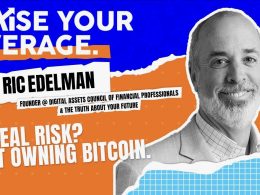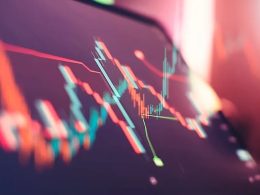by Brian Wesbury, Chief Economist, First Trust Portfolios
Conference Call Replay and Notes, May 6, 2020
Economy
• As investment professionals. We are all blessed to be able to serve our clients in these times due to technology, it would have been very difficult to serve them effectively twenty years ago if we were in a similar situation
• Various states shutting down led to a huge surge in initial unemployment claims
• Simultaneously, Government has been extremely generous with regards to unemployment benefits. Through July, employees will make more receiving government aid than being on the payroll
• We have also seen the flow of hundreds of billions out of the government to support businesses if they bring their employees back
• In terms of comparable periods, 1981/1982, Fed Chairman Paul Volker raised short term interest rates greater than 20%, two recessions and unemployment hit 10.8%. After the 2008 crisis, unemployment increased to 10%. Worst unemployment figures since post World War 2 and the Great depression
• 2nd quarter will be one of the worst declines for GDP down 20 to 30%
• All this data has lagged, but states are starting to reopen. We should see an improvement in the data, the second quarter will be the last negative quarter and we will grow the 3rd and 4th quarter
• High frequency data (see below), box office receipts are up the past month, hotel occupancy was up 2.6%, TSA checkpoint up 47.6% over the last week. Coming off extreme lows, but there are green-shoots
Why are states reopening?
1) Civil disobedience, as people don’t want government to control their lives, political pressure on states are growing
2) As states reopen, they put pressure on other states, competition among companies in those states. Mayors and Governors didn't anticipate the damage they would have in their state and congress is slow to response
• We will see lasting damage to this economy, numerous small businesses will never open up again, wrecked supply chains, restaurants cannot operate at 30% capacity or 50% capacity. The economy will morph but it will take time to come back.
• People in the medical field are extremely worried about Tuberculosis as we are no longer focused on it, a researcher predicts that by 2025 there will be 1.5 million deaths from Tuberculosis because the spread of that disease will increase.
• When we look back at this, we will see how big of a mistake this was, the more information we get on the damage that has been done
Markets
• When the government provides guidelines that certain businesses cannot open, but certain box stores or businesses with an online delivery capability can stay open, S&P 500 companies that have these abilities are able to take business away from the competition.
• The market was generally oversold in March, the expectation was that corporate profits would drop 80%, we now expect profits to decline by 25%, market is still pricing in 40% to 50% declines in corporate profits
• If you bought the Nasdaq at the end of 2018 and held through the worst pandemic in history, you would be up 34%
• You can't trade the market volatility so patience is what matters
• Because we expect a U-shaped recovery it will take us time to get back to record levels of corporate profits and as a result it will take awhile to get back to all time highs but we believe it will over the next 12 to 24 months
We see two types of futures
1) Shutdowns are standard operating procedure, if that is the case the, growth rate of the United States will slow precipitously, the reason is, if you're a business and the government can shut the economy down, you will take a lot less risk, hold more cash and invest less
2) As we look back post pandemic review of what happened, we will see the libertarian view within the US. The majority of Americans do not like the current situation. When we review the statistics, we will see we overreacted. The government overreached as a result we will see a rebound to swing back hard the other way
MMT
• Modern Monetary Theory is a farce, it didn't work in the 1970's, didn't work in the United Kingdom when the pound was the world's reserve currency and it won't work in the U.S.
• Quantitative easing started in 2008, but government was massively increasing regulation on bank lending and as a result it never turned into M2 money supply growth, the funds went into excess reserves
• This time the Fed has added trillions of dollars, way faster than they did in 08 and 09 and the Government is forcing loans out the door, in the past three months banks C&I loans is up 200% at an annualized rate. Money supply is growing close to 50% and that in the long run is massively inflationary
• We have seen the bottom, the only thing where we would be wrong is if we have a second wave as the states open up
Sectors
• Tech, pharma, biotech have been huge beneficiaries in this market.
• The market is acting like this is 2008 for financials, and we believe energy will recover We have oversold these sectors leading to very cheap valuations
Lending has gone up at the banks and their cost of funds have gone down. In addition, banks do not have to 1) mark to market 2) better capitalized, more liquidity than there has been for decades.
Information Technology
• FHQ/FHQ.F – First Trust AlphaDEX™ U.S. Technology Sector Index ETF (Back to Back Lipper Award Winning ETF. Technology will lead the recovery)
– Fact Sheet | Holdings
• FDN –First Trust Dow Jones Internet Index Fund (41 companies designed to represent the largest and most actively traded stocks of U.S. companies in the internet industry)
– Fact Sheet | Holdings
• CIBR –First Trust Nasdaq Cybersecurity ETF (42 companies designed to represent the cybersecurity segment of the technology and industrials sectors)
– Fact Sheet | Holdings
Health Care
• FHH/FHH.F– First Trust AlphaDEX™ U.S. Health Care Sector Index ETF (Defensive sector with growth characteristics, holdings include Regeneron, Abbott Laboratories, Gilead Sciences, Johnson and Johnson)
– Fact Sheet | Holdings
Financials
• FHF– First Trust AlphaDEX™ U.S. Financials Sector Index ETF (Fundata Award Winning ETF, holdings include Citigroup, Morgan Stanley, Fifth Third Bancorp, MSCI Inc)
– Fact Sheet | Holdings
Copyright © First Trust Portfolios















